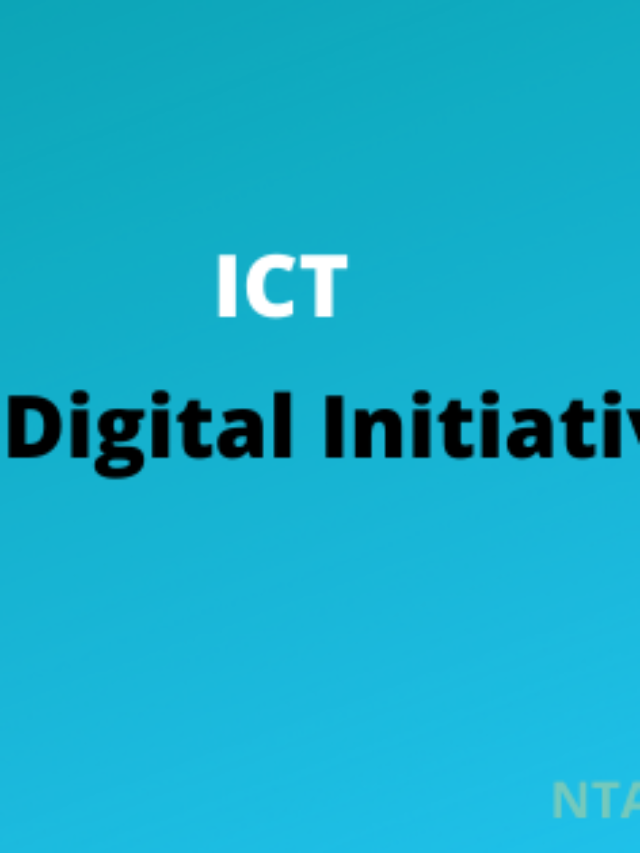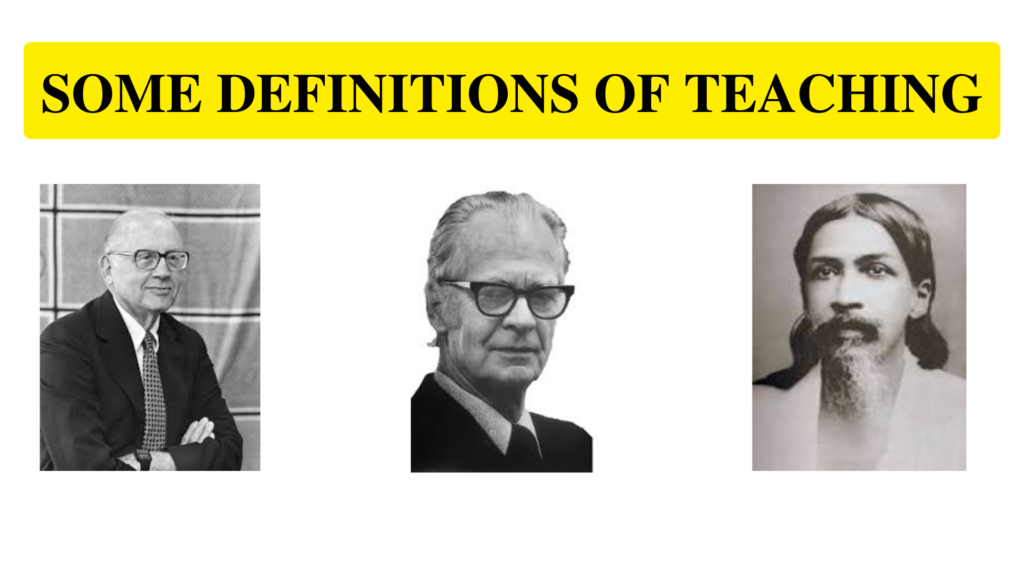SOME DEFINITIONS OF TEACHING
Teaching is cluster of activities that are noted about teachers such as explaining, deducing, questioning,
motivating, taking attendance, keeping record of works, students' progress and students' background
information.
G. Wells
Teaching is a form of interpersonal influence aimed at changing the behaviour potential of another person
N.L. Gage
Teaching is a transactional activity between the teacher and taught, teaching behavior by its very nature
exists in the context of social interaction. The acts of teaching leads to reciprocal contacts between the
teacher and the learners and the interchange itself called teaching.
Flanders
Teaching is a system of actions involving an agent, an end in view, and a situation including two sets of
factors—those over which the agent has no control (class size, size of classroom, physical characteristics
of pupils, etc.) and those that he can modify (way of asking questions about instruction and ways of
structuring information or ideas gleaned)
B.O. Smith
Teaching is defined as an interactive process, primarily involving classroom talk which takes place between
teachers and pupils and occurs during certain definable activities
Edmund Amidon
The first principle of true teaching is that nothing can be taught.
Shri Aurobindo
Teaching is 'the arrangement of contingencies of reinforcement'.
B. F. Skinner
Teaching is the task of a teacher which is performed for the development of a child.
Thomas F. Green
The teaching is "understanding and guiding of children as individual and as groups. It means the providing
of learning experiences that will enable each learner to grow continuously and sequentially towards his
delt role in society"
Morse and Wingo
Teaching is an intimate contact between a more mature personality and a less mature one which is designed
to further the education of the latter.
H.C. Morrison
Teaching is an arrangement and manipulation of a situation in which there are gaps and obstructions which
an individual will seek to overcome and from which he will learn in the course of doing so.
John Brubacher
Teaching is a process by which teacher and students create a shared environment including sets of values
and beliefs which in turn colour their view of reality
Joyce and Weil
Teaching refers to activities that are designed and performed to produce change in student behavior.
Clarke
Teaching is a complex process which includes four phases
-
(i) curriculum planning phase,
(ii) an instructing phase,
(iii) a measuring phase, and
(iv) an evaluative phase.
-
For curriculum planning phase
teacher should know the goals of education and the specific objectives to achieve those goals should be
formulated. Second phase "instructing" involves the creating, using and modifying instructional strategies,
which help the students to learn. Measuring, the third phase of the teaching process deals with the ability
to develop measuring devices, organize and analyze the results. Evaluation of teaching outcome requires
the help of data obtained from measuring devices. This evaluation is very much in terms of judgment about
instructional objectives and subject matter.
Haugh and Duncan
Teaching is a complex process to be studied entirely in a "live" situation. In other words teaching is a series
of events where teacher attempts to change the behavior of the students along the intended direction. In
the process of teaching teacher and student act as two poles interacting with each other through the path of
curriculum to achieve the predetermined objectives i.e. to promote the learning of students
Lawrence
Teaching is a "reciprocal contact" between student and teacher.
Flanders
Teaching involves a triad of elements (the teacher, the learner, the subject matter) and this triad is dynamic
in quality. He rightly asserts that the nature of teaching cannot understand properly by looking at only one
or two of the elements of the teaching relationships or by thinking of teaching as dyadic. Thus all the three
elements must be considered together in order to understand the interaction recurring during teaching.
In this frame of reference, a teacher needs not only to be aware of his aim of teaching but also of his
relationship with his learners and the subject matter and the learner’s relationship with the subject matter.
Also it prevents the teacher from trying to teach the 'syllabus' as handed out by department as it constitutes
a static and not a dynamic relationship between teacher and subject matter.
Ronald T. Hyman











